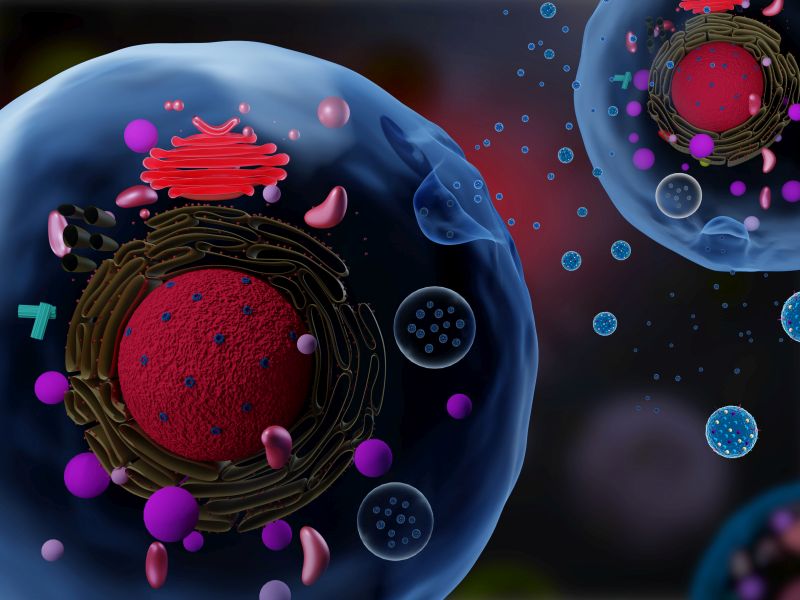Exosome-based liquid biopsy is a rapidly evolving field in medical diagnostics, offering a non-invasive alternative to traditional tissue biopsies. Exosomes are tiny vesicles, typically ranging from 30 to 150 nanometers in diameter, that are released by almost all types of cells into the bodily fluids. These vesicles carry a variety of molecular constituents of their cell of origin, including proteins, lipids, DNA, and various forms of RNA. This composition makes exosomes a rich source of biological information, reflective of the physiological or pathological state of their originating cells.
The concept of liquid biopsy through exosomes is particularly promising in cancer diagnostics and monitoring. Cancer cells release exosomes into the bloodstream, which carry tumor-specific molecules. By isolating and analyzing these exosomes, scientists can gain insights into the molecular makeup of a tumor. This process provides critical information about the genetic mutations and protein expressions specific to the cancer, without the need for invasive tissue biopsy procedures. Liquid biopsies through exosome analysis can thus facilitate early cancer detection, monitor tumor progression, and help in predicting response to therapies.
One of the key advantages of exosome-based liquid biopsies is their potential to offer real-time monitoring of disease. Since exosomes are continuously released into bodily fluids, they can provide up-to-date information about the disease state. This is particularly useful in tracking the effectiveness of treatment and detecting any recurrence of cancer. Furthermore, the non-invasive nature of liquid biopsies makes them suitable for repeated sampling, which is less feasible with traditional biopsies due to their invasive and often painful nature.
The field of exosome research is still in its infancy, and there are challenges to overcome, particularly in the standardization of exosome isolation and analysis methods. However, the potential of exosome-based liquid biopsies to transform the landscape of disease diagnosis and monitoring is immense. As research progresses, these techniques are expected to become more refined, offering a powerful tool in personalized medicine and targeted therapies.
Our current research is focused on pioneering a groundbreaking approach in liquid biopsy technology, centering on the highly selective detection of exosomes. This innovative method aims to significantly enhance the accuracy and efficiency of liquid biopsies, offering a more refined and targeted diagnostic tool. By honing in on the unique characteristics of exosomes, our technique is designed to provide a more detailed and comprehensive analysis of cellular information, potentially transforming the landscape of non-invasive medical diagnostics.
References
- W. Yu, J. Hurley, D. Roberts, S. K. Chakrabartty, D. Enderle, M. Noerholm, X. O. Breakerfield, and J. K. Skog, "Exosome-based liquid biopsies in cancer: opportunities and challenges ", Annals of Oncology 32, 466 (2021)
- B. Zhou, K. Xu, X. Zheng, T. Chen, J. Wang, Y. Song, Y. Shao, and S. Zheng, "Application of exosomes as liquid biopsy in clinical diagnosis", Signal Transduction and Targeted Therapy 5, 144 (2020)

Exosome-based liquid biopsy
- Field leader: Tianben Ding
- Funding: JSPS Core-to-Core Program
- Collaboration: Serendipity Lab, Masahiro Sonoshita (Hokkaido University), Shiro Suetsugu (Nara Institute of Science and Technology)